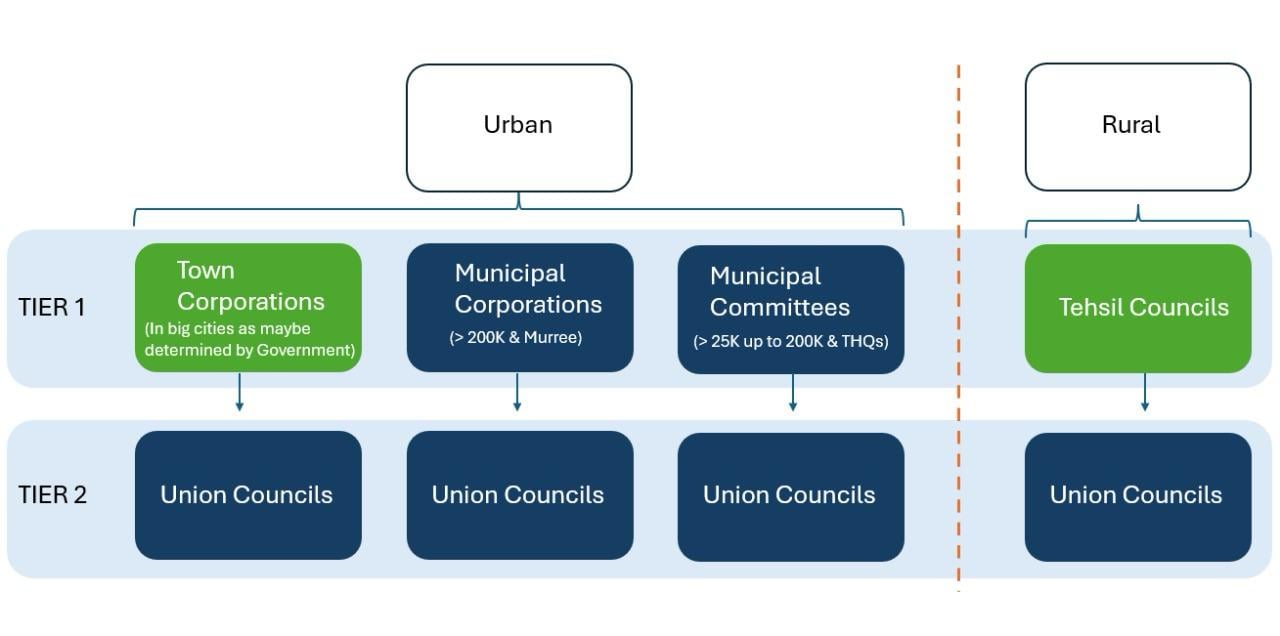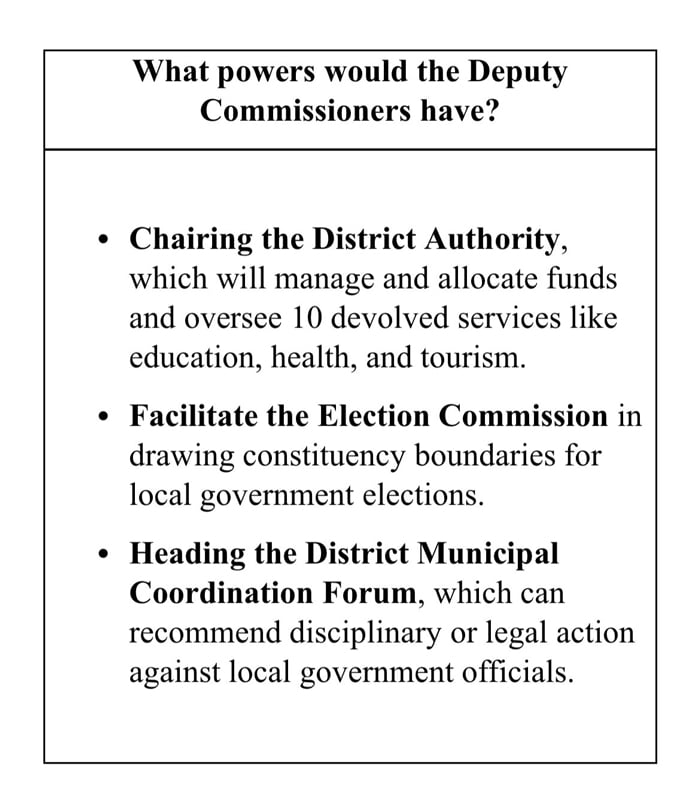Lahore: A new local government bill in Punjab grants a scanning authority to non -elected assistant commissioners (DC), the touch of elected officials and the control of alarms on democratic decline in the most populated province in Pakistan.
Placed by the Muslims League of Pakistan in power (PML-N) on March 7 at the Punjab Assembly, the bill is currently being examined in a permanent committee, where it was criticized not only opposition legislators but also members of the ruling party.
Legal experts argue that the bill undermines article 140A of the Constitution of Pakistan, which requires the devolution of power to elected local organizations. Others fear that the legislation aims to prevent the rise of powerful mayors from competing with political parties.
What is in the bill?
The proposed law introduces a two-level structure for local governments with a five-year term: one at the level of Tehsil (subdistrict) and another at the level of the Union Council.
In large cities like Lahore (population of more than 700,000 people), the upper level would be called a city company. Cities with populations between 200,000 and 700,000 would have municipal companies, while small cities (25,000 to 200,000 people) would be governed by municipal committees.
In rural areas, the upper level would be called the Tehsil council.

The second level would be known as union councils, the most basic governance units in urban and rural areas.
Voters would be authorized to elect directly only members of the union council. Each council would have 13 members – nine general seats and four reserved seats (for women, young people, peasants and non -Muslims).
These members then elect the deputy mayors of higher levels by an indirect vote.
Role of assistant commissioner
Given that the system begins at Tehsil level, it leaves the assistant commissioners, a bureaucratic position of the colonial era, in total control at the level of the district without elected counterpart to verify its powers.
In fact, under the bill, DCS would exercise considerable power. They would facilitate the electoral commission to trace the limits of the constituencies.
And direct a newly created district authority, which will be responsible for the management, exploitation and allocation of funds for the 10 departments developed to local governments, namely: health, education, social protection, population control, sports, transport, civil defense, public health engineering, art and culture and tourism.
The DCS would also chair the district municipal coordination forum, an organization that could recommend legal or disciplinary measures against local officials.

While local governments would technically control services such as water, sanitation, roads and cemeteries, among other things, the bill includes a major warning: any existing provincial agency providing these services would retain these powers unless the provincial government decides the opposite.
During a permanent session of April 10, government representatives admitted that the powers that revealed were “optional” and subject to the discretion of the Punjab government.
What does Govt say in his defense?
Zeeshan Rave, the Minister of the Local Government of Punjab, rejected the concerns that the local government system proposed would place elected representatives under the authority of the assistant commissioner.
“This is a false idea,” said referred in an interview with The News at a recent event in Lahore. “THE [new] Local governments will be completely independent and autonomous organizations. They will have their own budgets. The DC will only remain at the district level as a representative of the Punjab government. »»
Raoric has argued that the provincial government deserves the merit of having devolved authorities beyond the level of the district. “The government of Punjab should be appreciated for having reversed the power of districts at the lowest level, such as the subdistrict (Tehsil) and the Council of the Union,” he said.
However, the Minister has recognized that key questions are not resolved, in particular to find out if certain departments, such as health, should be awarded. “Yes, there are departments such as health, education, etc., where there is a debate on the amount they can be devolved,” he admitted.
“But I can guarantee you,” he added, “that after that [new law is passed]This will create the strongest local government and the provision of services will also improve. »»
The last time the local government of Punjab completed its mandate in 2021. Since then, no new election of local governments has been held in the province.
What do criticism say?
During the permanent meeting of April 10, the proper legislator of the PML-N, Ahmed Iqbal Chaudhry, criticized the bill of his party, describing it as a violation of article 140A. He stressed that provincial governments have already stripped local organizations of their basic responsibilities, handing them over to the provincial authorities.
He quoted the Punjab Mass Transit Authority, which oversees public transport, the SAAF Panority, which regulates water supply, the shehr e Khamoshan authority, which manages cemeteries, and more recently, the Punjab spatial planning authority, responsible for preparing land use plans, such as certain examples of provincial bodies already pushed in the field of local governments.
Chaudhry underlined the words added in the law that provincial authorities will continue to perform local government functions. “What we do is bad. We remove the powers of the local government and the parking [provincial] Authorities, ”he told the committee.
Experts say that another controversial provision in the bill is that each voter can only vote for a general member at the level of the Union Council. They say that this actually limits each party to present a single candidate, which makes it more difficult to guarantee a majority and increase the probability of fractured and multi -party advice.
“This system repels the political parties of local elections,” said Mubeen Uddin Qazi, lawyer and local government expert. “If an voter can only vote, how can a party campaign campaign for several candidates?” This violates the objective of the party -based elections. “
Mayraj Fahim, local governance advisor and stock market at City Mayors Foundation, said the bill was not a real attempt to unveil power.
“He [the bill] is a mess, “she told The News.” There is no research by supporting it. Punjab needs a solid system to correspond to its population and rapid urbanization. But instead, this system is low. It is undermined by the fragmentation and overlapping of the functions. »»
A academic based in Lahore, who asked for anonymity, said the bill seemed designed to block the rise of strong mayors considered as potential political threats.
“There seems to be a fear [within the PML-N] That this system could produce powerful mayors of rival parties, “he said.” Since strong mayors often become pretenders to management and increase competition in democratic space. “”
Originally published in the news




